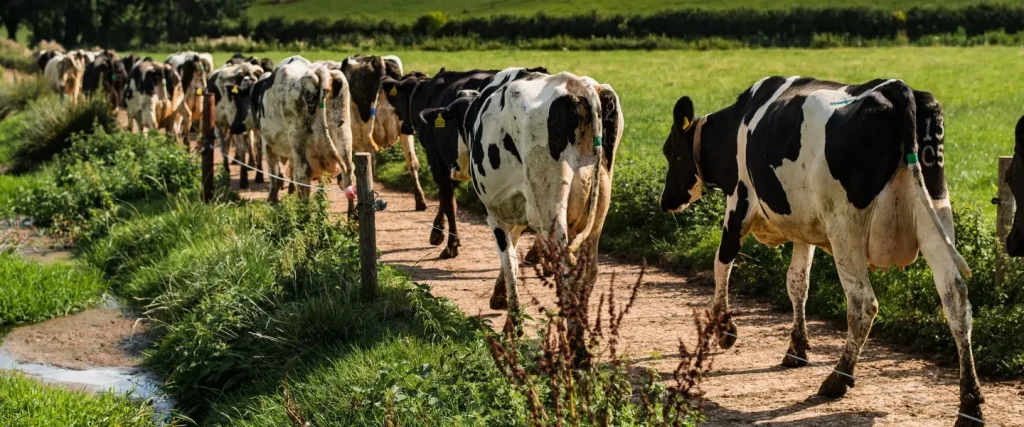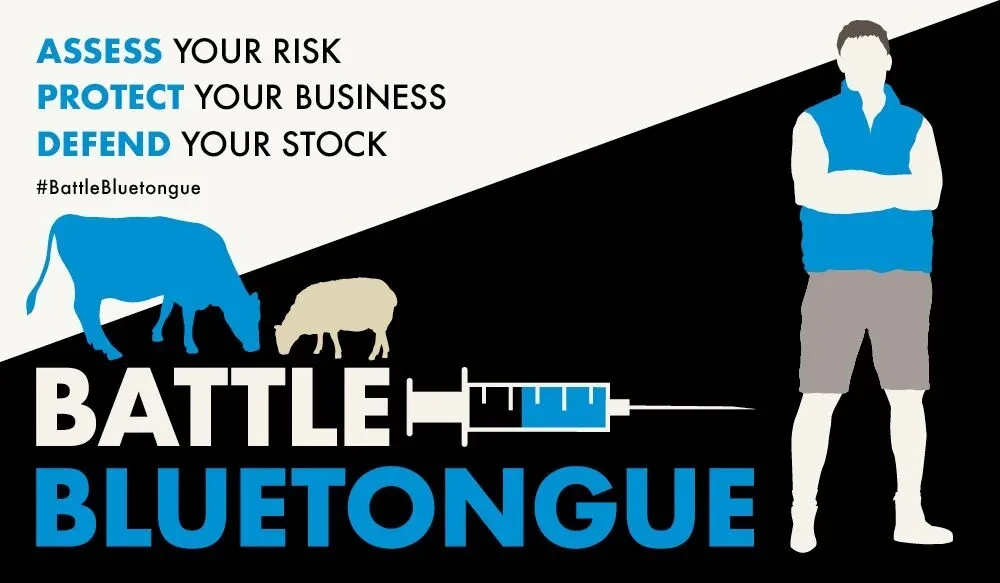Bluetongue.


Bluetongue
Our Vet Izzi breaks it down for us.
Bluetongue is a notifiable disease that is likely set to challenge us later this year. It is a viral disease spread by insects, largely midges that feed on an infected animal’s blood. This route of transmission is called vector borne. One single midge bite to an uninfected animal is enough to transmit the virus. There can also be transmission through semen and transplacental to the foetus, though these are less common. The midges spread infection locally (within few km’s), but infection can also spread via movement of infected animals hence last year’s movement restrictions on animal movement within Bluetongue control zones.
Cattle are known as reservoirs for infection as it easier for them to initially get infected due to their size and ease of access for midges. Once infected, cows shed a lot more virus and for a longer period than other species so are the main way midges become infected. They are also less likely to show any clinical signs so can be unknowingly shedding the virus for several weeks. As such preventing cows becoming infected is vital in preventing transmission to other species which are more severely affected such as sheep who are a lot more likely to show obvious clinical signs.
The clinical signs vary based on the different virus strains but so far it seems that the current strain BTV3 is more pathogenic than the BTV8 we saw back in 2008 when many of you may have vaccinated.
Cows | Sheep |
Lameness/stiff main sign | High temperatures |
Milk drop of between 1.2-1.7L day | Discharge from eyes/nose and drooling |
High temperatures | Oral lesions |
Crusty oral and nasal lesions | Swelling of lips, tongue, head and neck |
Reddening of mouth, eyes, nose, teats and coronary band | Difficulty breathing |
Fertility losses | Lameness and hoof wall damage often occur later on in disease process |
Neurological or Dummy calves |
|
Mild disease generally |
|
Low mortality rates | High mortality rate of up to 70% of affected animals |
Bluetongue is challenging to control due to there being several different virus strains with limited cross protection, midges being unaffected by insecticides, and it is hard to predict midge patterns as they are affected by several things including temperature (must be above 12°C for virus infection within the midge) and humidity.

One way to reduce the consequences of Bluetongue on your farm is to consider vaccination. Vaccination is unable to prevent infection but will reduce clinical signs and associated mortality thereby reducing the impact on your farm. We are stocking Bultavo-3 which can be given from 1 month old. Sheep require 1 dose under the skin and cattle require 2 doses 3 weeks apart into the muscle. It then takes about 3 weeks for immunity to develop. We are unsure how long vaccination lasts but ensuring animals are protected prior to midge numbers increasing is vital.
Battle Bluetongue is an AHDB initiative to educate and inform the industry on latest news and updates on the virus. We advise all clients to look at the Bluetongue impact assessment and apply it to you farm
Assess your risk to BTV3 on farm – use vaccine decision maker tool
Protect your business from restrictions by managing identified risks that can be controlled
Defend your stock by vaccinating
If you are weighing up whether to vaccinate, consider using the below calculators provided by AHDB. They consider the vaccine costs compared to associated losses with productivity, fertility and mortality based on the severity of infection. You can fill in your stock numbers to allow you to make a tailored decision based on your farm.
https://ahdb.org.uk/knowledge-library/btv-3-vaccination-finance-calculator-sheep
https://ahdb.org.uk/knowledge-library/btv-3-vaccination-finance-calculator-beef
The general summary is, the more severe the infection, the greater the benefit from vaccination and prioritising higher value breeding stock to reduce impacts on fertility would be advantageous.
When vaccinating, be sure to use a new needle for every animal to prevent transmission between animals.
We are hosting two meetings on Tuesday 6th May where we will go into more detail about the above and will be taking any questions you may have. We hope to see you there.
If you want to discuss further whether vaccination is the right decision for you or order your vaccines, give us a call on 01453 511311.
We also have two talks coming up on Tuesday 6th May - click here to book your place.
News & Insights
All news & insights
Case Study on Lameness in Sheep
See how the use of a vaccine halved this farmers antibiotic use!
Festive Delivery Times
Check when we are in your area over the Christmas and New Year period.
All of Wales in a BTV restricted zone
As of the 10th of November all of Wales will be in a BTV restricted zone (RZ).